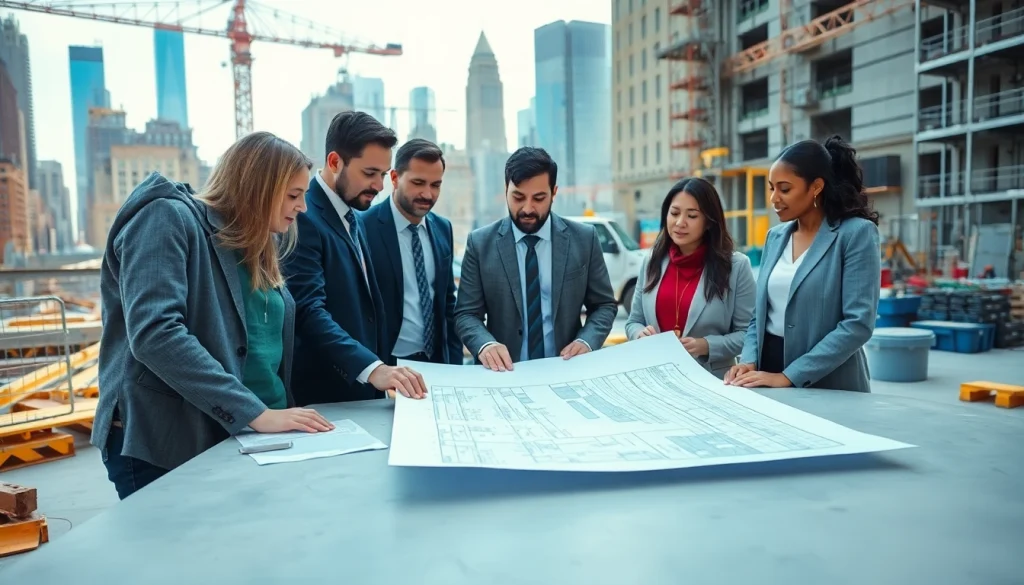Understanding the Role of a New York City Construction Manager
The role of a New York City Construction Manager is one that encompasses a vast array of responsibilities, skills, and challenges, each playing a significant part in the successful delivery of construction projects. With a bustling city known for its architectural diversity and dynamic infrastructure development, construction managers in New York City must not only possess a solid foundation in construction techniques and project management but also an acute understanding of the urban context in which they operate.
Understanding Construction Management in NYC
Construction management refers to the overall planning, coordination, and control of a project from inception to completion. In New York City, this process is particularly complex due to various factors, such as the scale of projects, the density of urban environments, and the diverse stakeholder landscape. Moreover, New York City has unique zoning laws, safety regulations, and building codes that require construction managers to be well-versed in local regulations.
The Importance of a Construction Manager
A New York City Construction Manager plays a critical role in ensuring that projects are completed on time, within budget, and according to quality standards. They act as a bridge between all parties involved, including contractors, subcontractors, architects, and clients. By maintaining communication and consistency, they help mitigate risks—ensuring that any issues that arise on-site are promptly addressed and resolved.
Overview of Responsibilities
The responsibilities of a construction manager in New York City are vast and include:
- Project planning and scheduling
- Budget management and financial reporting
- Quality control and compliance with building codes
- Hiring and managing subcontractors
- Safety management and risk assessment
- Regular site inspections and progress reporting
Key Skills Required for a New York City Construction Manager
Technical Skills and Knowledge
To thrive as a New York City Construction Manager, one must have a comprehensive set of technical skills. This includes understanding construction methods, materials, and technologies, as well as proficiency in industry-standard project management software. Additionally, familiarity with local regulations and building codes is paramount for ensuring compliance throughout the project lifecycle.
Leadership and Communication Skills
Effective leadership and communication are essential traits for a construction manager. They must be able to work collaboratively with diverse teams, fostering an environment of mutual respect and open dialogue. This skill set is critical in navigating conflicts that may arise and ensuring cohesive operations across various project phases.
Problem-Solving and Decision Making
The construction environment is often unpredictable, with unforeseen challenges arising regularly. A New York City Construction Manager must be adept at problem-solving, utilizing analytical skills to evaluate situations quickly, identify potential solutions, and make informed decisions that align with project goals.
Challenges Faced by New York City Construction Managers
Regulatory and Compliance Issues
New York City is known for its stringent regulatory environment. Construction managers face the challenge of obtaining multiple permits and ensuring that all activities comply with city regulations. Non-compliance can lead to significant delays, financial penalties, and even project shutdowns, necessitating that construction managers stay informed about current laws and regulatory updates.
Budget and Resource Management
Managing budgets in a high-stakes environment such as New York City can be particularly challenging. Construction managers must be able to accurately estimate costs, allocate resources effectively, and manage any variations that may arise during the project’s execution. They must constantly fend off overspending while still maintaining quality and safety standards.
Managing Large Urban Projects
Large urban construction projects come with intricate layers of complexity. Coordinating numerous contractors, managing logistics in congested areas, and navigating the city’s infrastructure can present significant operational challenges for a construction manager. Moreover, maintaining safety and minimizing disruptions to the surrounding community are critical aspects of effective project management.
Best Practices for New York City Construction Managers
Effective Project Planning and Scheduling
Successful project planning in New York City involves creating detailed schedules that account for all phases of construction. Using project management software to establish timelines, set milestones, and track progress can significantly enhance efficiency. A well-structured plan helps ensure that all team members are aligned and facilitates smoother project execution.
Communication with Stakeholders
Clear and regular communication with all stakeholders minimizes misunderstandings and keeps everyone informed about project developments. This can involve scheduled meetings, progress reports, and updates, reinforcing transparent relationships and ensuring that any concerns are promptly addressed.
Risk Assessment and Management Strategies
Conducting thorough risk assessments at the outset of a project is vital. Identifying potential risks—such as delays due to weather, supply chain issues, or labor shortages—allows construction managers to develop proactive strategies that can mitigate those risks. Continuous monitoring and adaptation of these strategies throughout the project lifecycle helps safeguard overall project execution.
Future Trends in Construction Management in NYC
Technology Advancements in Construction
The construction industry is rapidly evolving, with technology playing a leading role in its transformation. Innovations like Building Information Modeling (BIM), drone surveying, and artificial intelligence are streamlining operations and enhancing accuracy in project delivery. A New York City Construction Manager will need to embrace these technologies to remain competitive and improve project outcomes.
Green Building Practices
With increasing awareness of environmental issues, sustainable construction practices are becoming more prevalent. Construction managers will need to implement green building standards and practices, utilizing eco-friendly materials and energy-efficient designs. Understanding and applying these sustainable methods not only supports environmental responsibility but can also result in lower operational costs over time.
The Evolving Role of the Construction Manager
As the construction landscape shifts, so too does the role of the construction manager. They are evolving from traditional project overseers to become strategic leaders involved in all aspects of the construction process, including early design decisions and long-term operational strategies. This broader involvement requires a more interdisciplinary approach, necessitating ongoing education and adaptation to industry changes.
